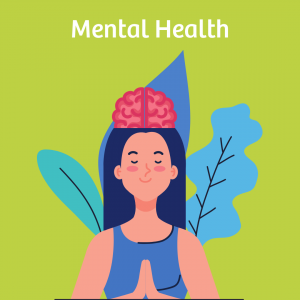Mental health is a sensitive topic for many people. For students and graduates, it can be an even more complicated issue to deal with, as they often feel the pressure to succeed academically while also managing other responsibilities and stresses. Unfortunately, there is a stigma attached to mental health issues that can make it even more difficult for students to seek help. This post will explore the nature of the stigma against mental health and discuss ways that students can overcome it.
What is the stigma around mental health and why does it exist?

The stigma around mental health is the negative attitudes, beliefs, and behaviours that surround mental illness. This can include things like discrimination, prejudice, and exclusion. Mental health stigma often exists because of a lack of understanding or awareness about mental illness. It can also be perpetrated by media portrayals of mental illness as dangerous or violent.
Mental health stigma can have a number of negative consequences. It can make it harder for people to seek help for mental illness, as they may feel embarrassed or ashamed. It can also lead to social isolation and discrimination.
How does this stigma affect students and their academic performance/well-being?
There is a lot of stigma surrounding mental health, especially in the academic setting. Students who suffer from mental health conditions often feel like they have to hide their symptoms and struggle in order to avoid judgment and discrimination. Mental health stigma can also affect students’ social lives. They may feel like they have to keep their condition a secret from friends and family, which can lead to social isolation and loneliness. This can further compound the negative effects of mental health conditions on students’ academic performance and well-being.
What can we do to break down the barriers that prevent people from seeking help for mental health issues?
There are a number of things that can be done to break down these barriers and make it easier for people to seek help. One of the most important things is education. If more people understand mental health disorders and know that they are common, it will help to reduce the stigma.
Another way to reduce the stigma is by talking about mental health more openly. This can be done in a number of ways, such as through media campaigns or public events. By raising awareness of mental health issues, we can help to reduce the stigma that surrounds them.
What resources are available on campus for students who are struggling with their mental health?
There are a number of resources available on campus for students and graduates who are struggling. The counselling centre offers individual and group counselling, as well as psychiatric services. There is also a wellness centre that offers yoga and meditation classes, massage therapy, and other services. Additionally, there are a number of student organizations that focus on mental health awareness and support. These organizations can be a great resource for finding information and support. Finally, the university offers a variety of resources like online videos posted on their social media accounts that can be accessed at any time. These resources include articles on various mental health topics, self-help guides, and a directory of mental health providers in the area.
If you or someone you know is struggling with their mental health, there are many resources available to help. Seek out help from a trusted source, such as a mental health professional, and don’t be afraid to ask for help from others.
Conclusion
Although it is slowly changing, the stigma surrounding mental health in general – and student mental health in particular – is still a huge issue. However, there are things we can all do to help reduce this stigma and make it easier for students to get the help they need. We hope you will join us in this effort. If you or someone you know is struggling with mental health issues, please don’t hesitate to reach out for help. There are people who want to support you, and there is no shame in seeking treatment. Remember that you are not alone in this journey. There are many people who care about you and want to help you heal.